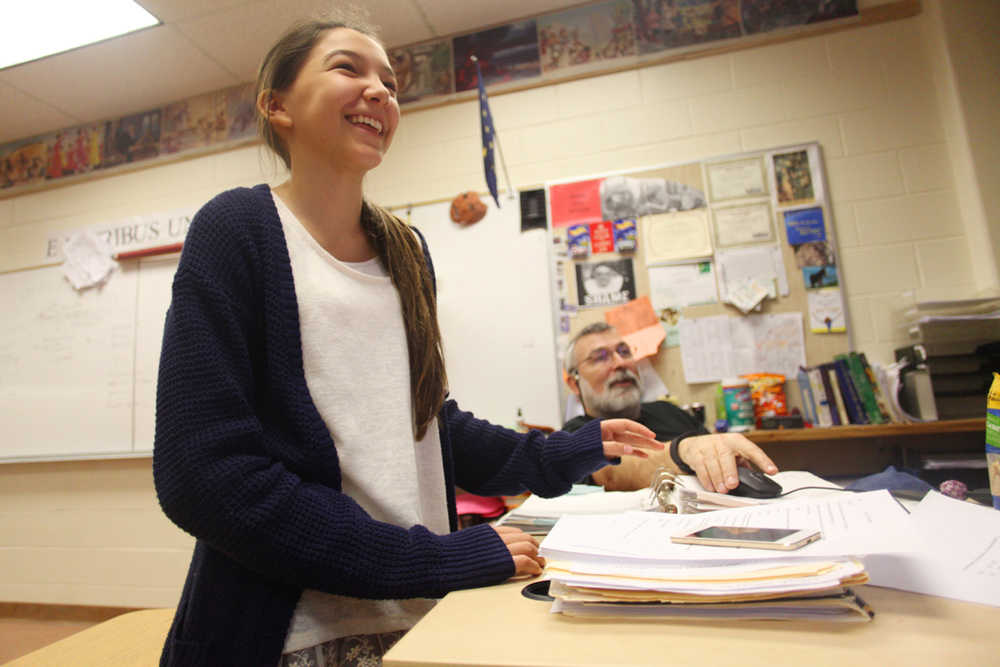A middle school student from Skyview Middle School will put her world knowledge to the test in a global way.
Seventh grader Gabriella Rogers is one of 100 students statewide heading to Anchorage on Friday, April 1, for the 2016 Alaska State Geography Bee, the winner of which will advance to the National Geographic bee Championship in Washington D.C., May 22-25. She has been preparing for months under the tutelage of social studies teacher Rob Moore.
“It is kind of above and beyond the call of duty for the kids,” Moore said.
Since geography is not offered anymore as its own class at the school, swallowed in the past by other curriculum requirements relating to standardized testing, students pick up bits and pieces in their social studies classes. Moore is one of 10,000 educators nationwide who have been making sure kids have the chance to take a more in depth approach to the subject by facilitating study sessions and testing interested groups who want to take a shot at the annual bee.
The contest is in its 28th year. The winner of the national contest will receive $25,000.
Moore said National Geographic started hosting the event to make sure the younger generations were gaining necessary knowledge of the world around them. He takes a similar approach in the classroom.
“I tell students the first day of class that social studies exists to answer the question ‘what is the best way to live?’” Moore said.
Rogers said she cultivated a broader interest in the subject because she wants to travel regularly when she is older and wants to understand what all her options will be.
She went up against about 15 of her peers this year, and hundreds more around Alaska to qualify as one of the top 100 hopefuls that will advance.
It will not be easy.
“Some (questions) don’t even seem like they are related to geography,” Rogers said.
While they all will be, the range is exhaustive.
Students could be asked anything about any event or information relating to anything that happened in all of the world’s 4 billion years of history, Moore said.
“You asked me (a word) you couldn’t even pronounce,” Rogers said to Moore with a smile.
Some questions are conceptual and some are straightforward, Moore said. Some are abstract and require formulating a thoughtful answer, while others will require a simple recall of facts, he said.
“If they ask a question about Europe and you don’t know the answer just say ‘France,’” Moore said to Rogers.
For many students it will be a matter relaxing and using common sense, Moore said. More and more kids already have much of that knowledge at their finger tips with all the various kinds of technology available to them, and it is becoming more vital they know how to put it into context, he said.
“This generation faces global problems to a scale and degree of consequences greater than any generation in the past,” Moore said.
Reach Kelly Sullivan at kelly.sullivan@peninsulaclarion.com.

